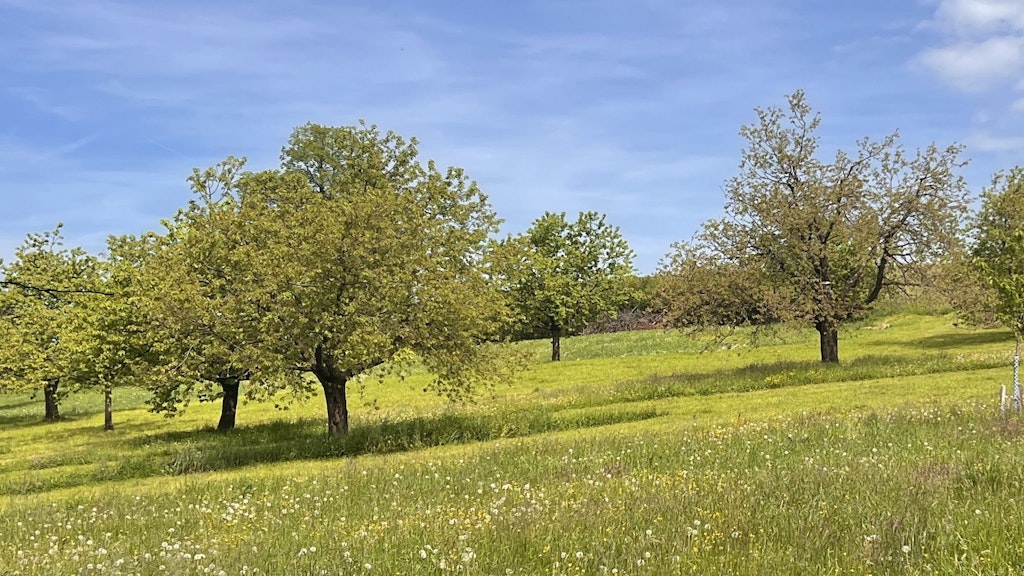Das BLW handelt jetzt für morgen
Wir setzen uns dafür ein, dass Bäuerinnen und Bauern nachhaltig und auf den Markt ausgerichtet produzieren. Eine multifunktionale, wertschöpfende Land- und Ernährungswirtschaft ist wichtig. Im Fokus des BLW steht zudem die Ernährungssicherheit für die Schweizer Bevölkerung.

News
Unsere Schwerpunkte

Agrarpolitik 2030+
Die Erarbeitung der nächsten Agrarpolitik wurde aufgegleist. Basierend auf einem Auftrag des Parlaments schafft das BLW die Grundlagen für die nächste Agrarpolitik bis 2030 (AP30+).

Direktzahlungen
Der Bund fördert die gemeinwirtschaftlichen Leistungen der Landwirtschaft mit Direktzahlungen.

Einfuhr
Für die Einfuhr von Agrarprodukten sind teilweise Bewilligungen erforderlich und Zollvorschriften einzuhalten. Anhand der Zolltarifnummer kann die Bewilligungsstelle eruiert und mögliche Zollkontingente für die Einfuhr eingesehen werden.

Nachhaltigkeit
Nachhaltigkeit bedeutet, die Bedürfnisse der Gegenwart zu befriedigen, ohne die Möglichkeiten zukünftiger Generationen einzuschränken. Dabei werden ökologische, soziale und ökonomische Ziele gleichermassen verfolgt.

Biodiversitätsbeiträge
Der Bund zahlt Beiträge für eine angepasste Nutzung der Flächen und fördert und erhält damit einheimische Arten und ihre Lebensräume in der Landwirtschaft.

Tierische Produkte
Tierische Produkte sind für die Schweizer Landwirtschaft sehr wichtig, sie generieren mehr als die Hälfte des landwirtschaftlichen Produktionswerts.
Medienmitteilungen
Bundesrat will Landwirtschaftsbetriebe administrativ entlasten und ihren Handlungsspielraum vergrössern
Der Bundesrat hat am 28. Januar 2026 die Vernehmlassung zum landwirtschaftlichen Verordnungspaket 2026 eröffnet. Die ab dem 1. Januar 2027 geltenden Verordnungsanpassungen sollen die Betriebe administrativ entlasten. So schlägt der Bundesrat eine Reihe von Massnahmen zur Vereinfachung der Agrarpolitik vor, insbesondere im Bereich der Direktzahlungen.
Agrarministerkonferenz zu Wasser und Ernährungssicherheit
Vom 15. bis 17. Januar 2026 findet das Global Forum for Food and Agriculture (GFFA) in Berlin statt. Das Forum steht ganz im Zeichen eines zentralen Themas: Wasser und Ernährungssicherheit. Politischer Höhepunkt ist die 18. Berliner Agrarministerkonferenz am 17. Januar. Christian Hofer, Direktor des Bundesamts für Landwirtschaft (BLW), vertritt die Schweiz.
Strategie 2035: Für einen nachhaltigen Schutz der Kulturen in der Schweiz
Angesichts der zunehmenden Herausforderungen für den einheimischen Pflanzenbau hat das Bundesamt für Landwirtschaft (BLW) die Strategie für einen nachhaltigen Schutz der Kulturen 2035 entwickelt. Mit einem Paket von zehn Schlüsselmassnahmen sollen der Schutz der Kulturen verbessert und der Pflanzenbau gestärkt werden. Die vollständige Umsetzung ist im Rahmen der AP30+ geplant.
Kontakt und Standort
Schwarzenburgstrasse 165
Schweiz - 3003 Bern

